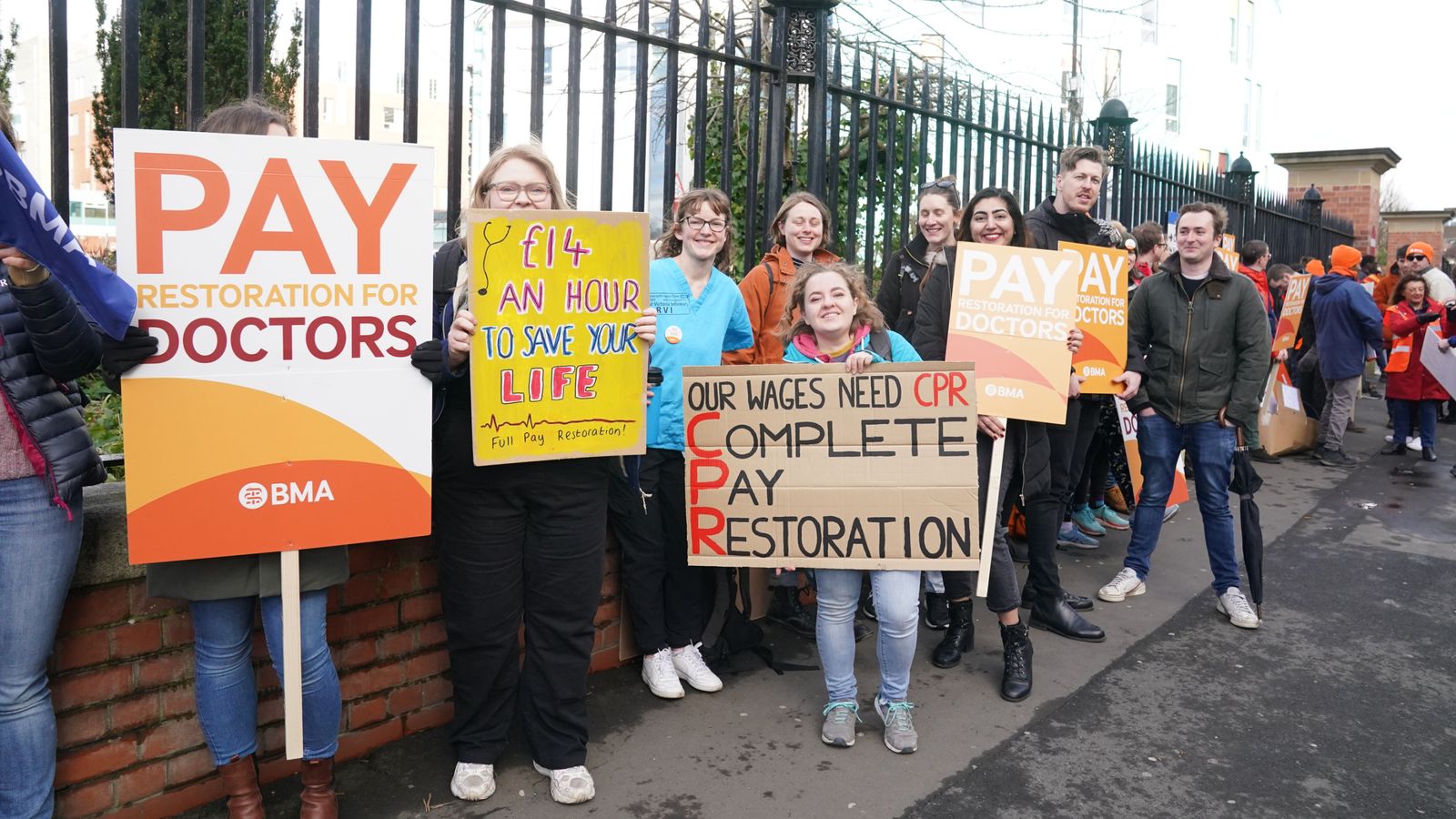
The UK economy grew slightly in the first three months of the year, according to official figures - but contracted in March.
Growth of 0.1% was recorded by the Office of National Statistics (ONS) in the three months up to March, the lowest amount possible to still be classed as growth as IT and construction sector activity offset the impact of strikes.
However, the economy shrank 0.3% in March as retail and car sales fell sharply, and public sector strikes were more disruptive than February as NHS staff and teachers took to picket lines.
Contraction also came thanks to a 0.5% fall in services production. Distribution and retail also had a poor month as cost of living pressures hit consumers.
Economic research firm Pantheon Macro has pointed out the UK is falling below the G7 group of the world's largest economies.
"The UK remains the only G7 country in which the main quarterly measure of GDP has not recovered to its pre-COVID peak yet; it still was 0.5% below its Q4 2019 level in Q1," the Pantheon Macro chief economist said.
"This chiefly reflects weakness in households' real spending, which was 2.3% below its Q4 2019 level. But at least the magnitude of the underperformance is not increasing relative to other countries in Europe, which have faced a similarly enormous energy price shock," Samuel Tombs said.
ONS publishes GDP data every month, which stands for gross domestic product and measures the sum total of everything produced in the economy.
Higher economic growth brings increased tax revenues and likely higher incomes and standards of living.
As part of his focus on economic growth, Prime Minister Rishi Sunak says growing the economy will create better-paid jobs and opportunities across the country.
A three-month period, or quarter, of economic growth means the UK is on the path to avoid recession. But the growth recorded is small.
An economy is technically in a recession after two quarters of negative economic growth, though the Bank of England now expects the UK will avoid recession this year.
Today's announcement followed a flatlining economy in February and growth of 0.5% in January.
In response to the figures, Chancellor Jeremy Hunt said: "It's good news that the economy is growing but to reach the government's growth priority we need to stay focused on competitive taxes, labour supply and productivity.
"The Bank of England governor confirmed yesterday that the budget has made an important start but we will keep going until the job is done and we have the high wage, high growth economy we need."
Rachel Reeves MP, Labour's shadow chancellor of the Exchequer, responding to the latest GDP forecast today, said: "Labour wants to match the ambition of the British people - while the Tories would rather continue down a path of managed decline of low growth and high taxes.
"Despite our country's huge potential and promise, today is another day in the dismal low growth record book of this Conservative government.
"The facts remain that families are feeling worse off and we're lagging behind on the global stage.
"Labour's mission to secure the highest sustained growth in the G7 will make families across every part of our country better off."
https://news.google.com/rss/articles/CBMiU2h0dHBzOi8vbmV3cy5za3kuY29tL3N0b3J5L3VrLWVjb25vbXktc2hyYW5rLTAtMy1pbi1tYXJjaC1vbnMtZmlndXJlcy1zaG93LTEyODc4MzE20gFXaHR0cHM6Ly9uZXdzLnNreS5jb20vc3RvcnkvYW1wL3VrLWVjb25vbXktc2hyYW5rLTAtMy1pbi1tYXJjaC1vbnMtZmlndXJlcy1zaG93LTEyODc4MzE2?oc=5
2023-05-12 07:07:30Z
2024066824
Tidak ada komentar:
Posting Komentar